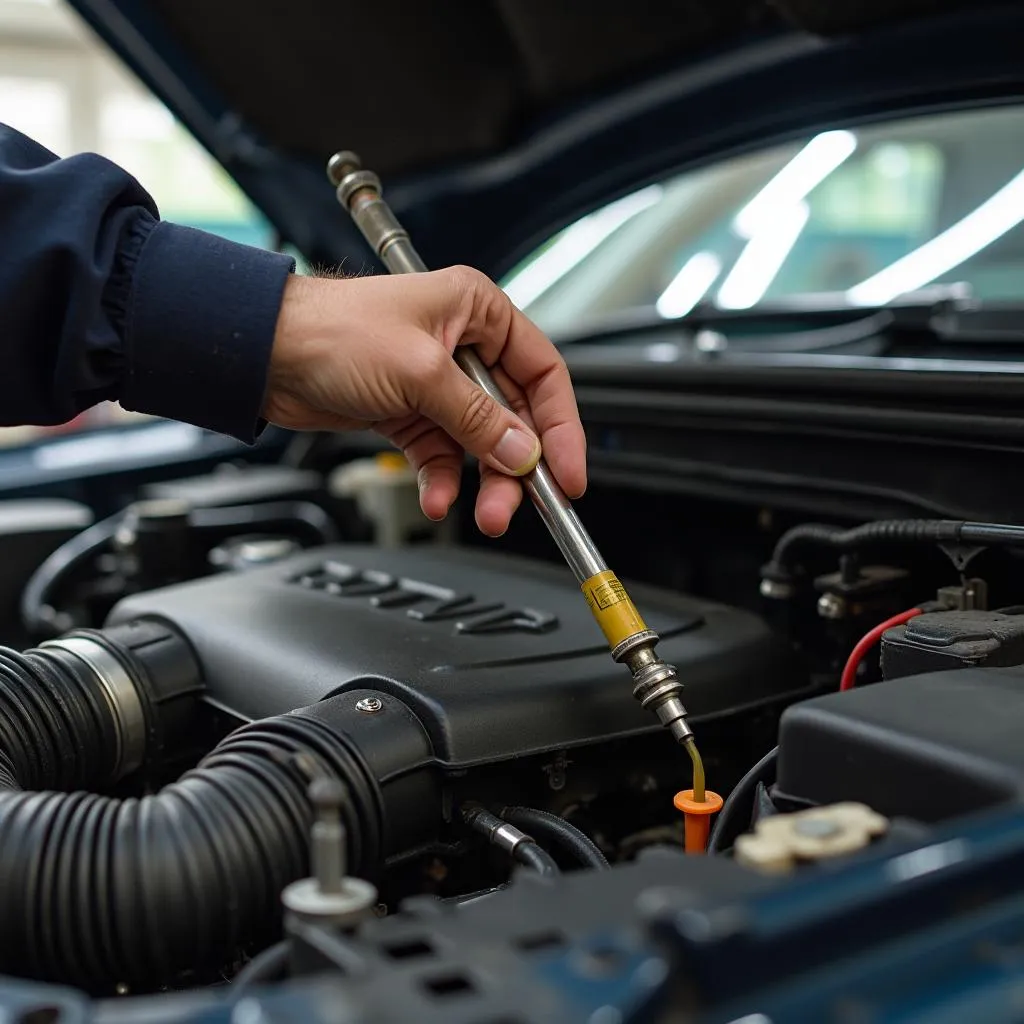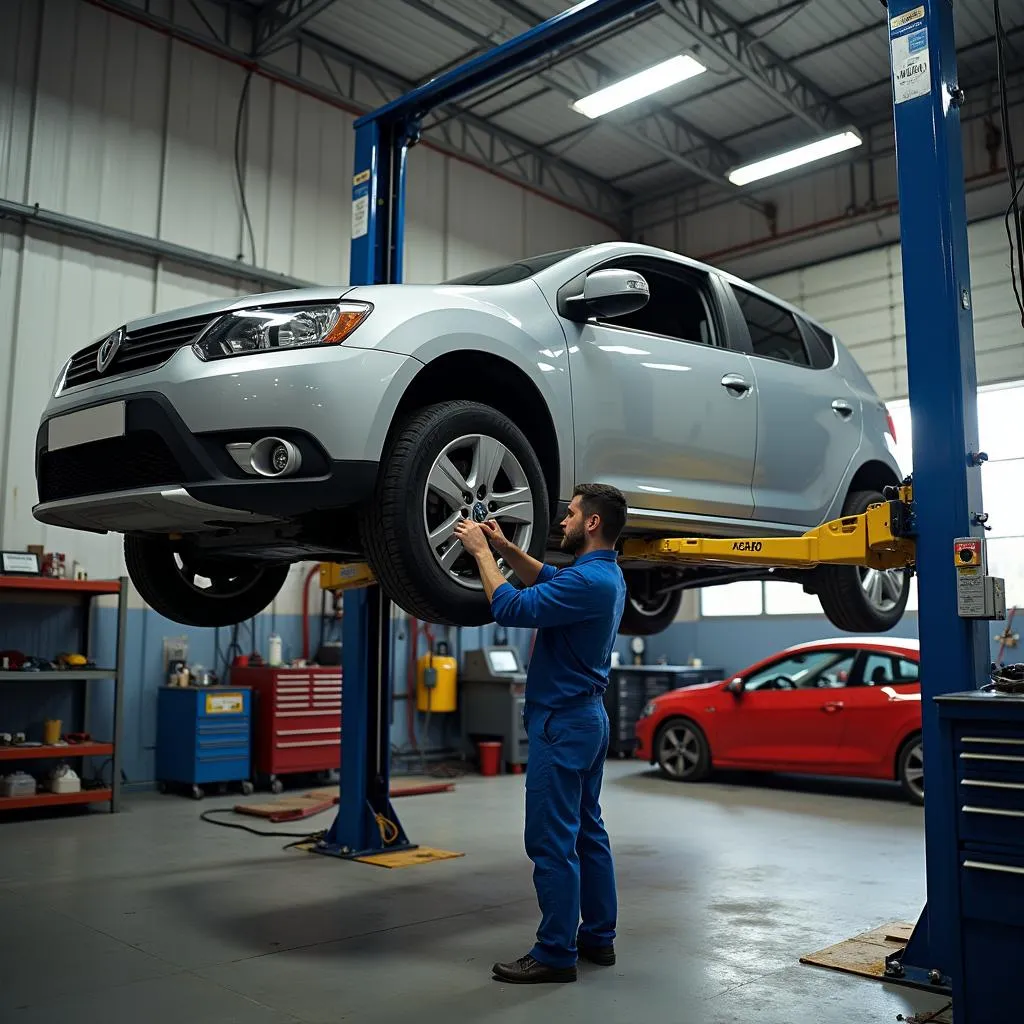Keeping Your Car Running Smoothly: The Importance of Transmission Service
Keeping your car running smoothly requires regular maintenance, and few things are as crucial as a transmission service. Whether you drive an automatic or manual, your transmission is a complex system that ensures efficient power delivery from your engine to the wheels. Neglecting transmission service can lead to costly repairs down the line, making it essential to understand its importance and how it intertwines with overall auto repair.
The Importance of a Transmission Service
Your car’s transmission endures constant stress, managing gear changes and transferring power. Regular transmission service ensures that it operates at peak efficiency and helps prevent premature wear and tear. Here’s why it’s so crucial:
- Fluid Changes: Transmission fluid lubricates moving parts, cools the system, and helps engage gears smoothly. Over time, this fluid degrades, losing its effectiveness. Regular fluid changes are vital to prevent damage and ensure optimal performance.
- Filter Replacement: The transmission filter traps debris and contaminants, preventing them from circulating and causing damage. Replacing the filter during a service ensures proper fluid flow and protects internal components.
- Inspection for Leaks and Damage: A transmission service includes a thorough inspection for leaks, wear and tear, and potential problems. Identifying issues early on can save you from expensive repairs later.
Signs You Might Need a Transmission Service
Ignoring transmission problems can lead to significant and costly damage. Recognizing the warning signs is key to addressing issues proactively:
- Slipping Gears: If your car jumps out of gear or hesitates when shifting, it could indicate a problem with your transmission.
- Rough Shifting: Experiencing difficulty shifting gears or hearing grinding noises when changing gears suggests a potential issue that needs immediate attention.
- Fluid Leaks: Reddish-brown fluid under your car is a clear sign of a transmission leak. Address this promptly to prevent further damage.
- Burning Smell: A burning smell coming from your transmission could indicate overheating or fluid degradation.
- Check Engine Light: While not always directly related to transmission problems, the check engine light can illuminate for various reasons, including transmission issues.
 Checking Transmission Fluid Level
Checking Transmission Fluid Level
What to Expect During a Transmission Service
A typical transmission service involves several key steps:
- Fluid Inspection: A mechanic will check the fluid level, color, and smell. Dark or burnt-smelling fluid indicates the need for a change.
- Fluid Drain and Refill: The old fluid is drained, and the system is replenished with fresh, manufacturer-recommended transmission fluid.
- Filter Replacement: The old filter is removed and replaced with a new one to ensure optimal fluid cleanliness.
- Pan Inspection and Cleaning: The transmission pan, which holds the fluid, is inspected for debris and cleaned thoroughly.
- System Check: After the service, the mechanic will check for leaks and ensure the transmission is functioning correctly.
 Car Transmission Repair in Progress
Car Transmission Repair in Progress
The Cost of Neglecting Transmission Service
While a transmission service represents an investment in your car’s health, neglecting it can lead to far greater expenses. Here’s why:
- Major Repairs: Ignoring early signs of transmission problems can result in severe damage to internal components, leading to costly repairs or even complete transmission failure.
- Decreased Fuel Efficiency: A poorly maintained transmission can negatively impact your car’s fuel economy, costing you more at the pump.
- Safety Concerns: Transmission problems can compromise your safety on the road, potentially leading to accidents.
How Often Should You Get a Transmission Service?
The frequency of transmission service varies depending on your car’s make, model, and driving habits. Always consult your owner’s manual for specific recommendations. However, a general rule of thumb is to have your transmission serviced every 30,000 to 60,000 miles, or every 2 to 4 years.
Choosing the Right Auto Repair Shop
When it comes to your car’s transmission, trust is paramount. Select a reputable auto repair shop with experienced technicians specializing in transmission service and repair. Look for certifications, ask for recommendations, and check online reviews to make an informed decision.
 Car Mechanic Performing Vehicle Inspection
Car Mechanic Performing Vehicle Inspection
Conclusion
A transmission service is a vital aspect of auto repair, ensuring the longevity and performance of your vehicle. By understanding its importance, recognizing warning signs, and adhering to a regular maintenance schedule, you can avoid costly repairs and enjoy a smooth and safe driving experience. Don’t underestimate the role a well-maintained transmission plays in your car’s overall health and your peace of mind.
Frequently Asked Questions
1. How much does a transmission service typically cost?
The cost varies depending on your car’s make and model, as well as the service provider. On average, you can expect to pay between $150 and $300 for a standard transmission service.
2. Can I add transmission fluid myself?
While it’s possible to add transmission fluid yourself, it’s generally recommended to have it done by a professional. Overfilling or using the wrong type of fluid can cause damage to your transmission.
3. How long does a transmission service take?
A typical transmission service can take anywhere from 1 to 3 hours, depending on the complexity of your vehicle’s transmission system.
4. What is a transmission flush?
A transmission flush is a more involved service that uses a specialized machine to remove all the old fluid and replace it with new fluid. It’s generally recommended for vehicles with high mileage or those experiencing transmission problems.
5. How do I know if I need a transmission rebuild or replacement?
If your transmission is exhibiting severe problems, such as complete failure or extensive internal damage, a rebuild or replacement might be necessary. Consult with a trusted mechanic to determine the best course of action.
Need Help with Your Transmission or Auto Repair?
For all your auto repair needs, including expert transmission service, contact us today! We are here to answer your questions and provide top-notch service to keep your car running smoothly.
Reach out to our team via:
WhatsApp: +1(641)206-8880
Email: [email protected]
Our dedicated customer support team is available 24/7 to assist you.


